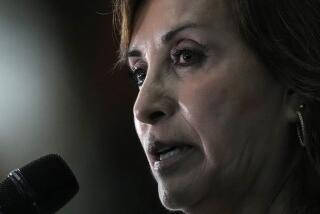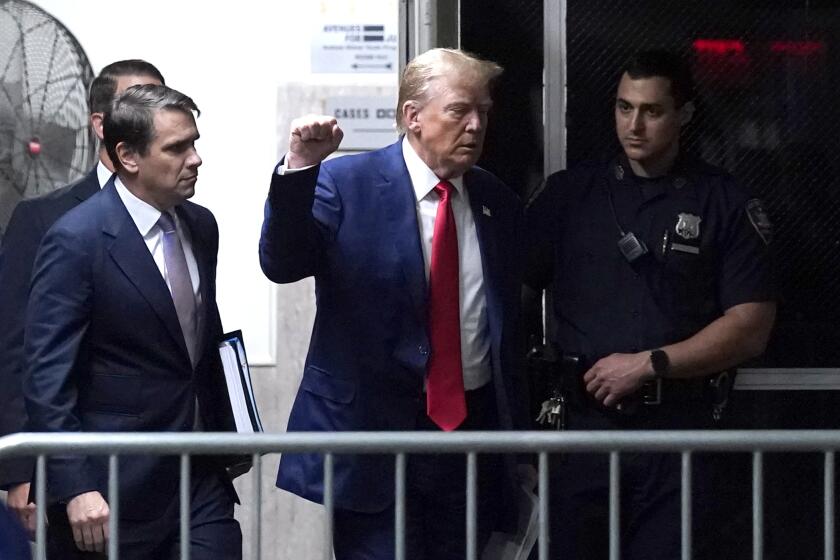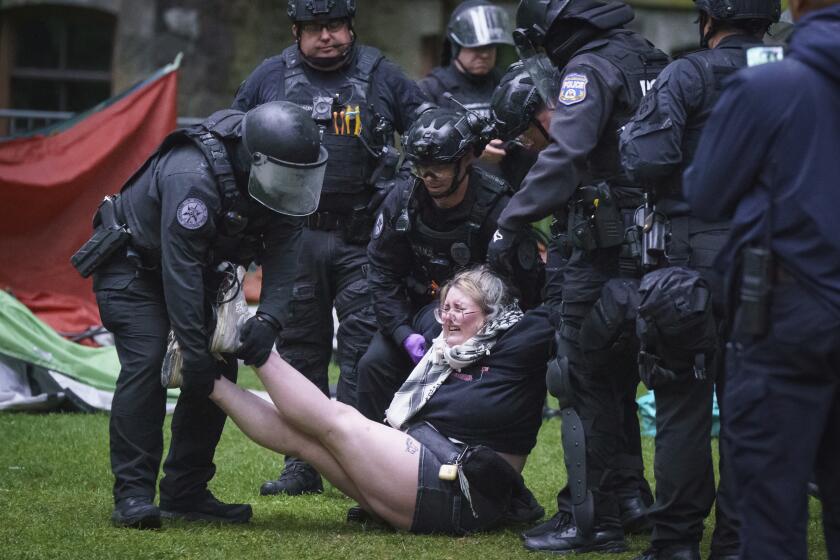This senator is the last major obstacle to the Philippines’ war on drugs. She may end up behind bars
The Philippine president’s staunchest critic, Sen. Leila De Lima, was stripped of a key post Tuesday, in what she says is an act of political retribution.
And with a hearing now opened into allegations that she took bribes from drug dealers, observers say De Lima could ultimately end up behind bars — becoming the first high-level victim of political persecution under President Rodrigo Duterte’s administration and removing the last major obstacle to his war on drugs.
In late August, De Lima, a 57-year-old senator and former justice secretary with a reputation for fiery rhetoric and bold political moves, launched a human rights probe into a wave of extrajudicial killings that has gripped the country in recent months.
Duterte, in response, accused her of taking bribes from drug lords.
“It is possible that De Lima will end up in detention, facing trial,” said John Nery, a Manila-based journalist and political commentator. “What the dust-up first tells us is that the president calls the shots most of the time, and it is very difficult, and takes a lot of time, before resistance can be organized.”
Duterte, 71, has repeatedly vowed to eradicate the country’s widespread drug problem without regard for human rights — and since his inauguration on June 30, more than 3,000 suspected drug users, pushers and family members have lost their lives, most shot by police and vigilantes. The youngest victim was a 4-year-old girl, gunned down as her father took her out to buy popcorn.
On Monday, a group of senators led by Manny Pacquiao, the boxer-turned-politician, accused De Lima of being “biased,” and voted to oust her as chairwoman of the Senate committee on justice and human rights. They replaced her with a more “neutral” senator: Richard Gordon, who encouraged Duterte to suspend habeas corpus — a move equated with declaring martial law — after a terrorist attack in early September. (Duterte declared a “state of lawlessness,” giving the military heightened powers, but did not suspend habeas corpus.)
De Lima said in a speech at the Senate on Tuesday that she was “the first target of a new McCarthyism in our time, of being singled out by the powers that be for daring to think differently and to advocate passionately for what one believes in.”
“Many friends and colleagues have told me, if only I did not call out the president on the murderous consequences of his war on drugs, and decided to be as meek as a sheep, I would not be in this trouble, and I would still have the committee chairmanship,” she continued.
“As the Bible says, what does it profit a man to gain the whole world, and yet lose his soul? I choose to keep my soul.”
De Lima’s Senate investigation has monopolized the Philippines’ front pages since its launch Aug. 22, gripping the nation and setting politicians on edge. On Sept. 15, the committee heard testimony from Edgar Matobato, an admitted former assassin during Duterte’s 22-year tenure as mayor of the southern city of Davao. During that time, Matobato said, Duterte was involved in about 1,000 extrajudicial killings. Once, Matobato said, he killed a Justice Department agent with an Uzi; another time, vigilantes fed a victim’s body to crocodiles.
Duterte has hit back against De Lima with a string of personal attacks. He has accused her of having a “driver and lover” who accepted money from drug lords in the maximum security New Bilibid Prison, and has called her a “robber” and an “immoral woman.” As De Lima’s investigation gained pace, so did his accusations. In late August, he said: “If I were De Lima, ladies and gentlemen, I’d hang myself.”
On Tuesday, Congress called a hearing into the drug trade at New Bilibid, and convicted felons, speaking with immunity, accused De Lima of accepting bribes. A bank robber, Herbert Colangco, told Congress that starting in 2013, he had paid De Lima $62,637 a month so that she would let him hold events in prison and sell beer to other inmates. Another former inmate, speaking on live television, disclosed De Lima’s telephone number and home address.
“What we’re seeing in Congress now is the full might of the government being used to demolish [De Lima] in the hearings,” said Filipino human rights worker who requested anonymity, citing concerns about his personal safety. “The investigation is a good thing, to find out the truth of her involvement — it’s just that the way they’re doing it is questionable.”
Experts say that the clash between Duterte and De Lima wasn’t unexpected — the two first butted heads in 2009, when De Lima launched an investigation into his role in extrajudicial killings in Davao, during his mayorship. The investigation didn’t turn up much, experts say, but it put De Lima in Duterte’s target sights.
“Many people knew this was inevitable and, to use what may be an Americanism, brought out the popcorn,” Nery said. He added that Matobato’s testimony likely came as a shock to the country’s political establishment, and may have turned other senators against De Lima. “That was too much reality, too soon, for most of the senators, I gather,” he said.
Meanwhile, the victims of Duterte’s war on drugs continue to pile up. On Sept. 10, a late British baron’s daughter, on bail while facing drug charges, was gunned down by vigilantes. On Monday, Duterte asked for a six-month extension for the war, claiming that so many people in the country were linked to the drug trade that he “cannot kill them all.”
“I did not realize how severe and how serious the drug menace was in this republic until I became president,” Duterte told reporters on Sunday, according to Agence France-Presse.
Duterte enjoys a 91% approval rating, the polling organization Pulse found in July.
“The problematic part for me is the don’t-care attitude of the president,” De Lima told the Los Angeles Times in an interview last month, before the inquiry began.
“He’s so popular,” she continued. “Of course he thinks he has an overwhelming mandate, and that’s a license for him to say things which wittingly or unwittingly encourage killings. Now, he doesn’t care — because he would repeatedly say that he’s ready to lose his life, his honor, and even his presidency [to eradicate drugs]. So how do you argue with a man like that?”
MORE WORLD NEWS
Vladimir Putin is the man to watch at the UN as he deepens Russia’s role in the Middle East
Taiwan’s president won a landslide election — and then her popularity sprang a leak
More to Read
Start your day right
Sign up for Essential California for news, features and recommendations from the L.A. Times and beyond in your inbox six days a week.
You may occasionally receive promotional content from the Los Angeles Times.






